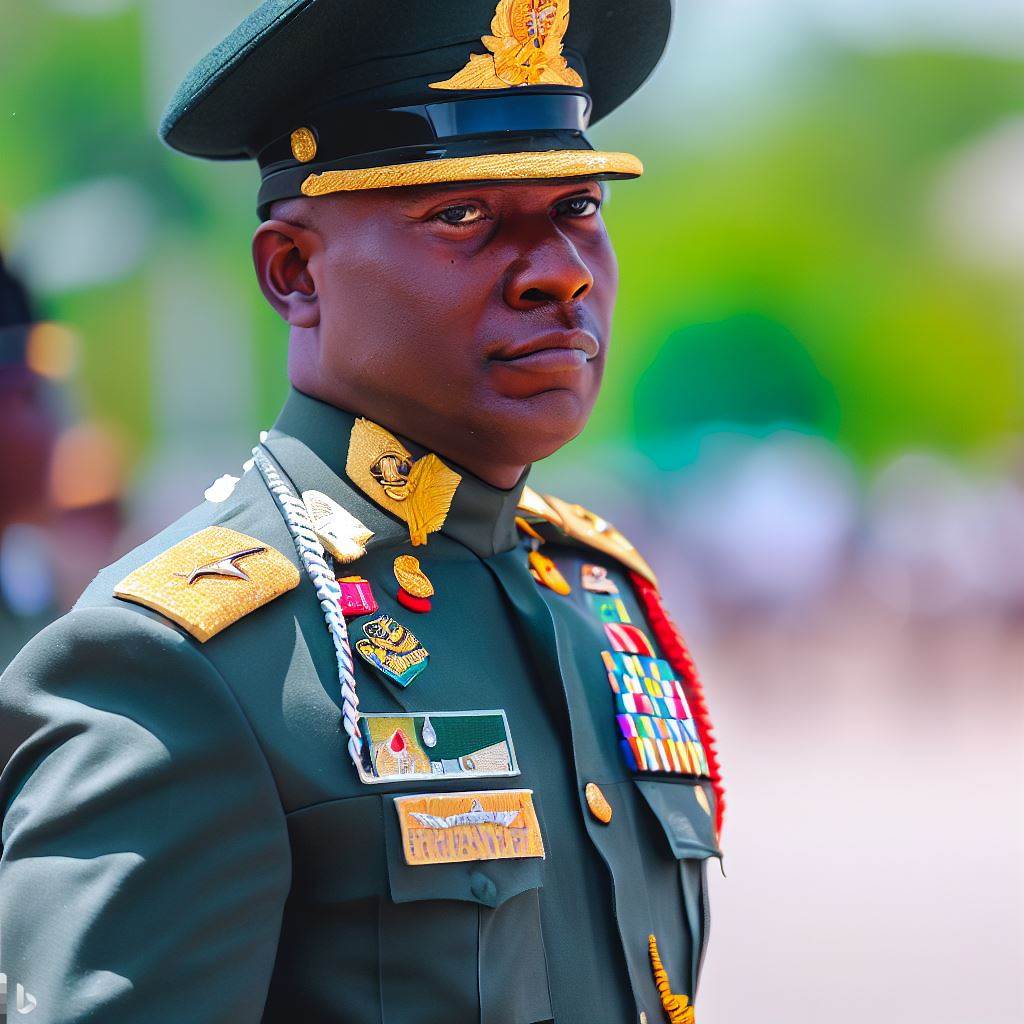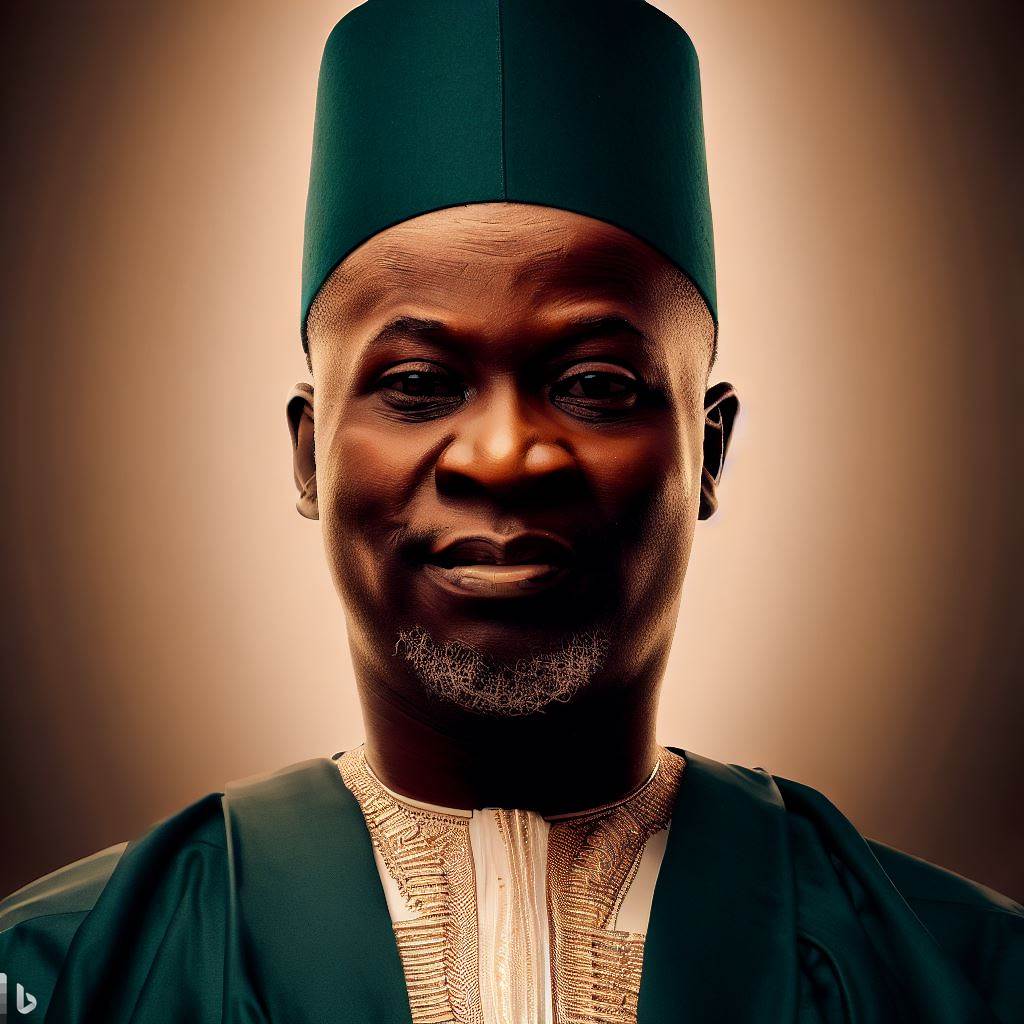Introduction
Nigeria has a large military force that plays a critical role in its security. With more than 200,000 active personnel, the Nigerian military comprises various branches, including the Army, Navy, and Air Force, which engage in peacekeeping missions and safeguard the country’s territorial integrity.
However, the effectiveness of the Nigerian military is often influenced by the government’s policies towards it. In this blog, we will discuss the Nigerian military, its role, and the impact of government policies on its operations.
Government policies affecting the Nigerian military
Since the country gained independence in 1960, the Nigerian military has been an integral part of the nation’s progress. From interventions in political crises to peacekeeping and fighting against terrorism, the military has played a crucial role in various aspects of the country’s development.
However, government policies can significantly impact the military’s effectiveness and efficiency, as discussed below:
Military budget allocation
The Nigerian military budget has experienced significant fluctuations due to changing government policies. The government may prioritize funding for other projects, leading to inadequate military resources.
Allocations have been subjected to corruption, with the diversion of funds that have impacted negatively on military equipment and overall effectiveness.
Recruitment policy changes
Recruitment policies have been modified several times to achieve a more diverse and effective military. The new recruitment policies aim to address ethnic, gender, and regional disparities in the military.
For example, policies target more officer roles for women in the military and a higher representation of ethnic minorities. The recruitment changes could increase the quality of the military and lead to better leadership and performance.
Reduction in military size
The Nigerian government has reduced the size of its military to make it more effective and efficient. The reduction aims to reduce costs and give the military a more defined focus in terms of objectives.
Hence, the downsizing has resulted in a more focused and specialized military but raises concerns in the face of current security challenges.
Diplomatic policies with neighboring countries
The Nigerian military has collaborated with neighboring countries to combat security challenges in the region. Collaboration has led to the establishment of Joint Task Forces to combat terrorism and other threat to Nigeria’s territorial integrity.
The government’s diplomatic policies with neighboring countries can impact the military’s ability to achieve its security objective.
Defense policy reforms
The military’s capability and strategies get influenced by defense policy reforms. For instance, the government has proposed various policy reforms to bring the military to higher standards and promote transparency and professionalism.
The policy reforms intend to make the military better equipped, organized, and equipped with modern security technologies. Reforming defense policy can improve overall national security and render the military better prepared to tackle security challenges.
It is clear that government policies can have varying impacts on the Nigerian military, leading to both positive and negative consequences.
The government must consider its policies’ potential impact on the military and prioritize its adequate funding to ensure the military’s effectiveness.
Improved recruitment policies, defense reforms, and diplomatic collaboration with neighboring countries can enhance the military’s capability and promote national security.
Read: Nigeria’s Military: Service Branches Explained
Uncover the Details: Nigeria’s Bomb Disposal Techniques: Modern Approaches
Impact of Government Policies on the Nigerian Military
Low Budget Allocation and Impact on Military Readiness
The Nigerian military has often been affected by low budget allocation, which has negatively impacted its readiness.
The low allocation has led to inadequate funding for training, equipment, and maintenance of military hardware. As a result, the military has often found it difficult to carry out its operations effectively.
Changes in Recruitment Policy and Its Impact on the Competency of the Military
Changes to the recruitment policy of the Nigerian military have also had an impact on its competency.
At times, the government has prioritized recruitment into the military to address particular issues of national security. This has led to a lopsided and unbalanced mix of personnel in terms of expertise, rank, and even ethnic diversity.
It has also caused a situation where the military lacks the necessary skills to carry out operations effectively.
Reduction in Military Size and Its Impact on National Security
The Nigerian government has, on occasion, reduced the size of the military, which has affected the country’s national security.
The reduction of the military has often occurred due to budgetary constraints or political considerations. Still, it has often left the country vulnerable to external and internal security threats, such as Boko Haram attacks.
Read: A Guide to Understanding the Political Landscape of Nigeria
Diplomatic Policies with Neighboring Countries and Their Impact on National Defense
Diplomatic policies with neighboring countries have often had an impact on Nigeria’s national defense. Nigeria’s relationship with its neighbors has been defined by security concerns, with efforts to manage the common border often dictating diplomatic relations.
At times, diplomatic policies have led to the militarization of the border and strained relationships with neighboring countries.
Defense Policy Reforms and Their Impact on Military Operations
Reforms to Nigeria’s defense policy have often had a significant impact on military operations. The government has, on occasion, implemented defense policy reforms aimed at modernizing the military, improving its efficiency, and reducing corruption.
Although these policies have led to some improvements, they have often been slowed down or hampered by bureaucratic processes and even corruption.
Essentially, government policies have had significant impacts on the Nigerian military. Low budget allocations, changes to recruitment policies, reductions in military size, diplomatic policies with neighboring countries, and defense policy reforms have all impacted the country’s military readiness and operations.
As such, it is crucial that government policies are designed to optimize the Nigerian military’s performance rather than undermine it.
Read: Government and Military in Nigeria: A Symbiotic Relationship

Recommendations for improving government policies on the Nigerian military
- Increase military budget allocation: The Nigerian government should allocate more funds towards the military to address gaps in equipment and training.
- Enhance recruitment policies: The government should review and reform the recruitment process to ensure that only the best and most qualified individuals are recruited into the military.
- Increase military size: Increasing the size of the military will help address the security challenges faced by Nigerian troops and boost their ability to defend the country.
- Consistent diplomatic policies with neighboring countries: Nigeria should adopt consistent diplomatic policies and cooperate more closely with its neighbors to combat insurgency and other security challenges in the region.
- Continuous defense policy reforms: The government should review and update its defense policies to ensure that they align with current security challenges and emerging threats.
The Nigerian military has faced a number of challenges in recent years, including insurgency, terrorism, and internal conflicts.
These challenges have necessitated a review of government policies towards the military, with a view to enhancing the capacity and capability of the armed forces to protect the country and its citizens.
Therefore, improving government policies on the Nigerian military is crucial to addressing the country’s security challenges and ensuring the safety and well-being of its citizens.
The recommendations outlined above, which include increasing military budget allocation, enhancing recruitment policies, increasing military size, adopting consistent diplomatic policies with neighboring countries, and conducting regular defense policy reforms, will go a long way towards enhancing the capacity and capability of the Nigerian military.
With the right policies and initiatives in place, the Nigerian military can become a more effective force for defending the country and contributing to regional stability.
Read: Retirement in the Nigerian Military: What to Expect
Conclusion
Finally, the impact of government policies on the Nigerian military has been significant. The policies have helped improve the military’s operational capabilities and effectiveness.
However, there is a need for continued improvement in government policies to maintain the Nigerian military’s competence. This includes addressing issues such as funding, equipment, and training.
Overall, the Nigerian government must prioritize the development and implementation of policies that promote the growth and stability of the military. Only then can the military effectively carry out its duties as a defender of the nation’s sovereignty and security.




